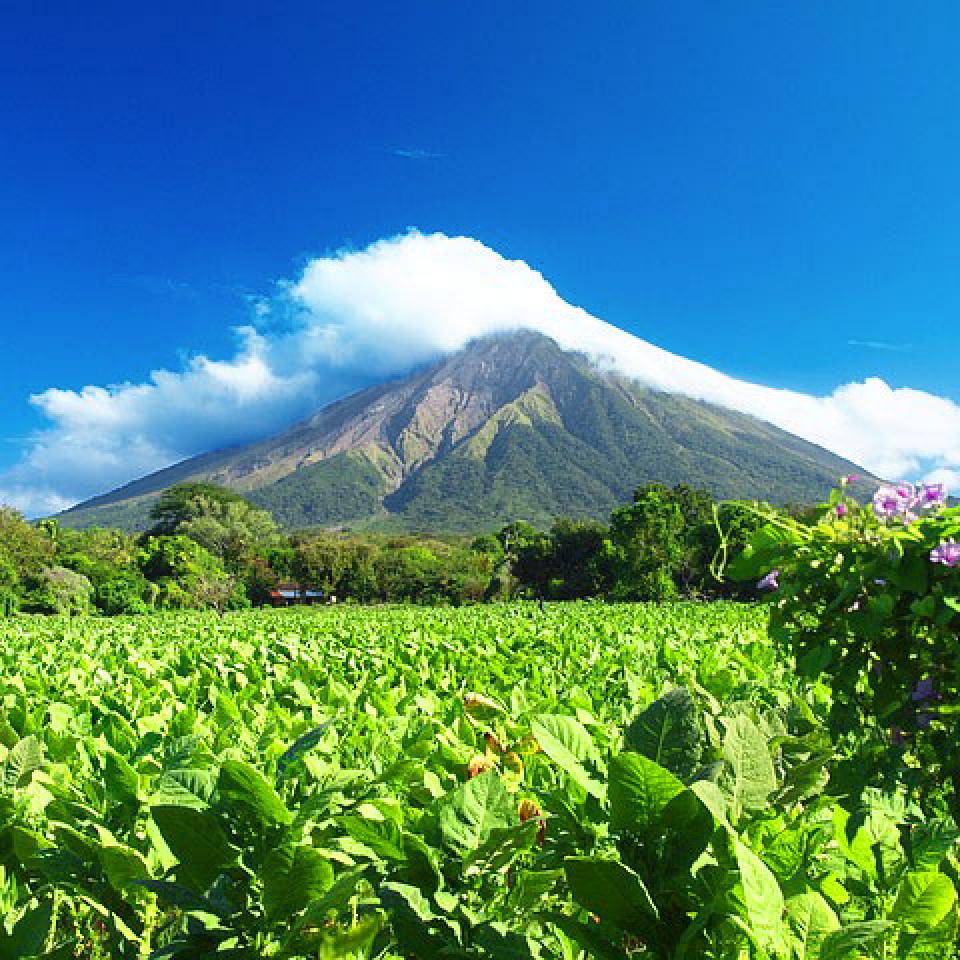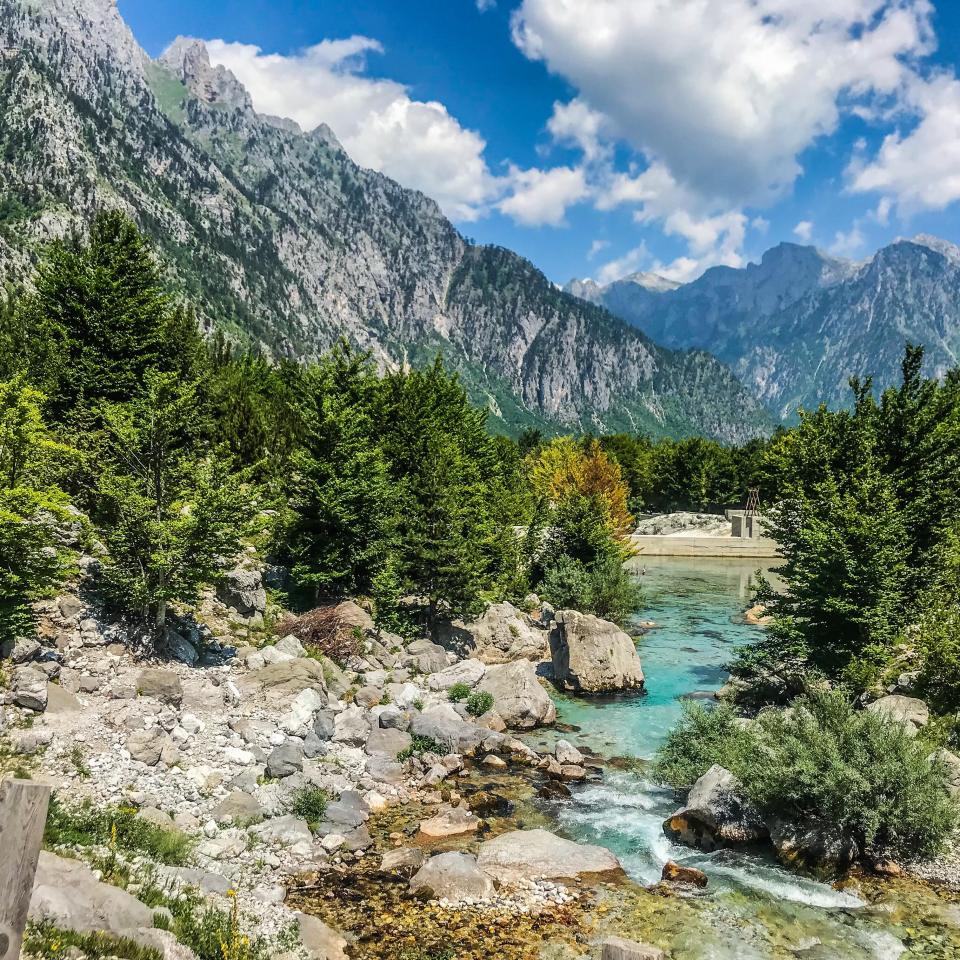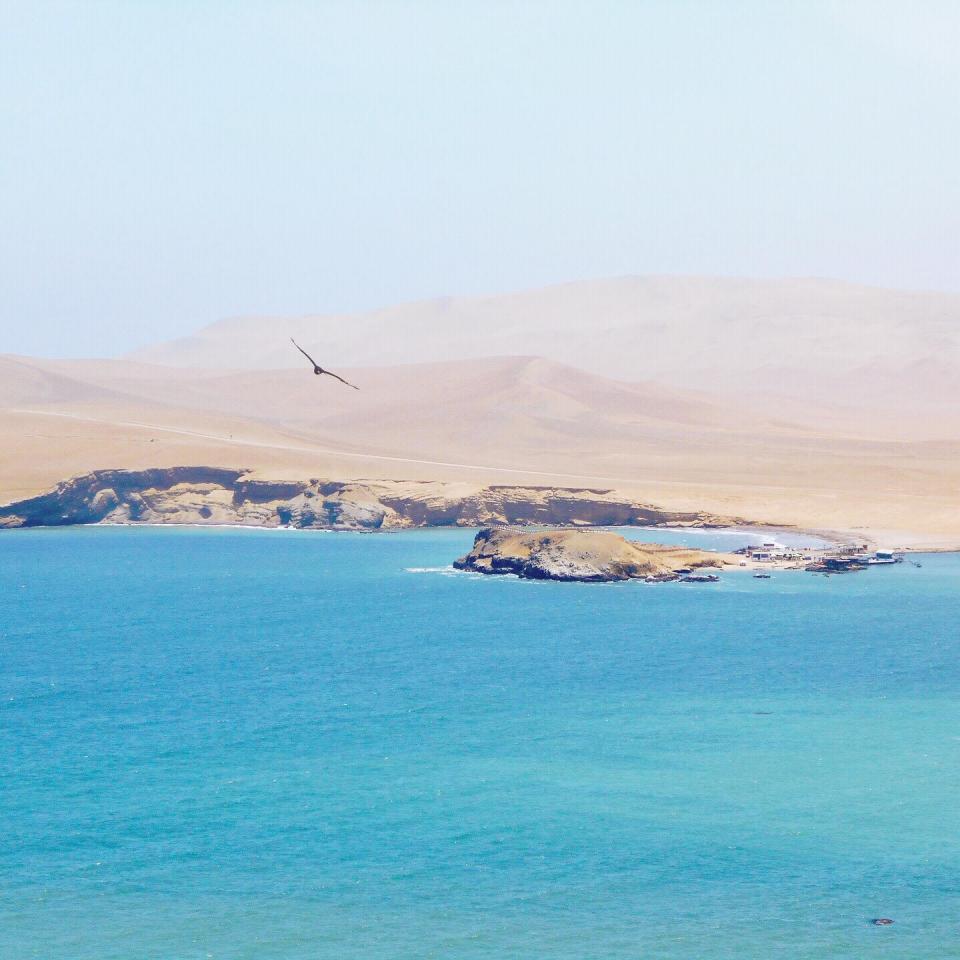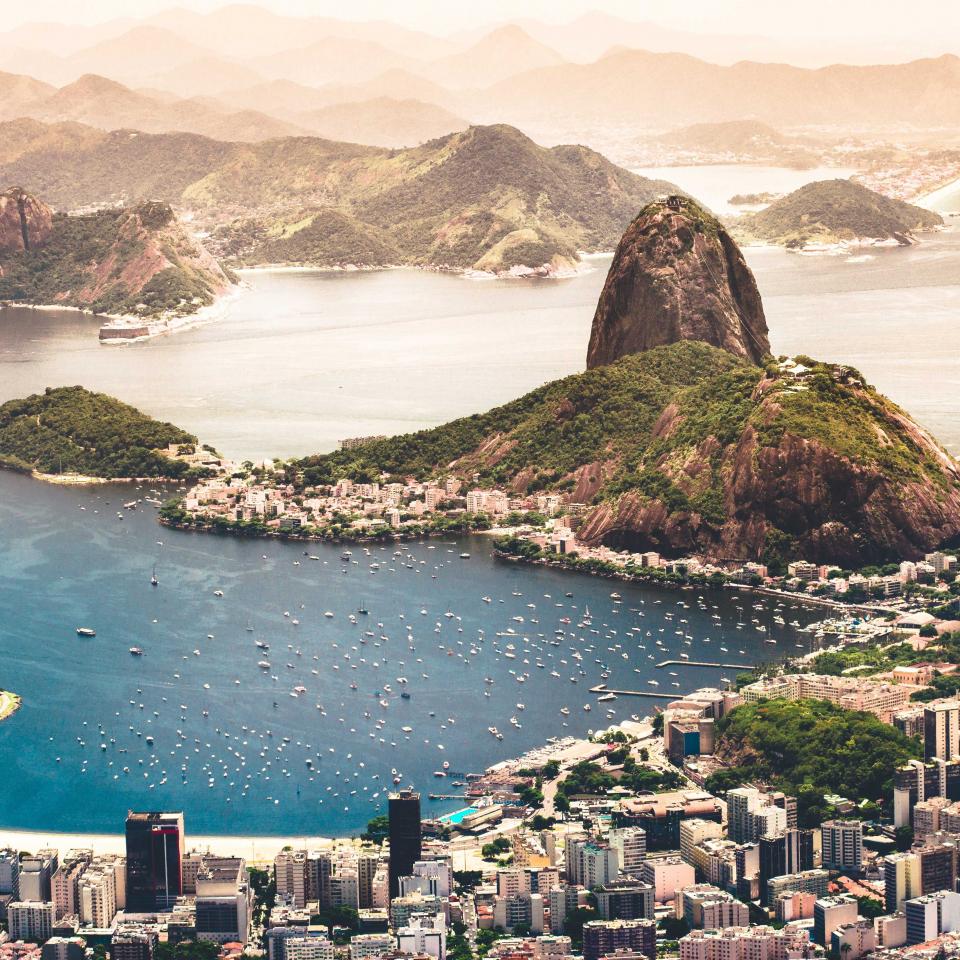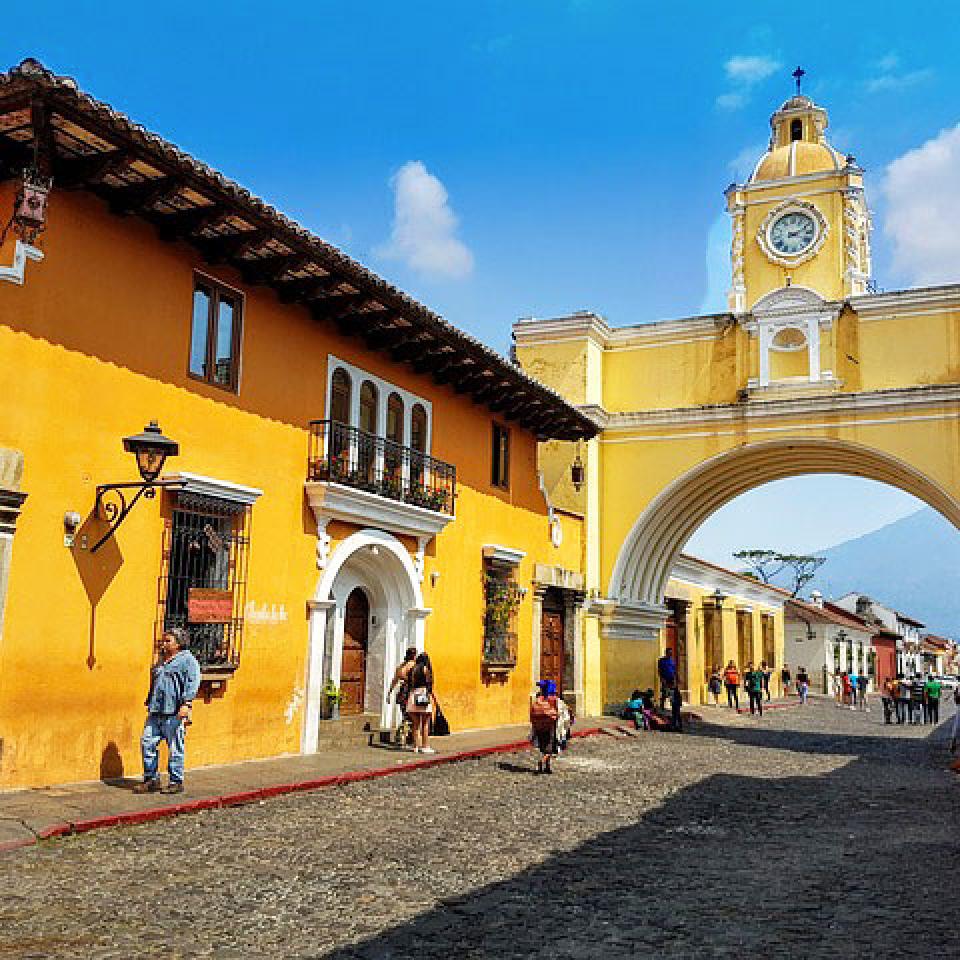Antigua, Guatemala attracts tourists in high numbers and it’s easy to understand why. Antigua is a safer and more beautiful city than the country’s capital and it’s an easy entryway into Central America.
Upon arriving to Antigua, first time visitors are struck by this colonial city's charm and incredible, colorful landscape. Canary colored churches decorate the streets, as do bright textiles worn and sold by the plentiful population of indigenous women. Old school buses, commonly referred to as “chicken busses”, with their sparkling paint jobs and religious decor, roar down the streets leaving a trail of hideous black diesel smoke that lingers a little longer.
Antigua is a vibrant and delightful city with kind and friendly inhabitants. The streets are cobbled and filled with well-preserved ruins and Spanish Baroque-influenced architecture. Women making tortillas are everywhere and one can hear them patting fresh dough between their palms. The melodic sounds of the marimba, a wooden percussive instrument, fill the plazas, as do the church bells that are never quite on schedule. The air smells smoky and sweet, it's often a little dusty, and the dramatic landscape includes the easy-to-spot Volcán de Agua to the south and Volcán de Fuego and Acatenango to the west.
Antigua, a UNESCO world heritage site since 1979, impresses. And though visitors are awestruck by this remarkable and unique landscape, it doesn’t take long for foreigners to become keenly aware of Guatemala’s poverty and difficult economic situation.
In the plazas, very young children walk the streets selling bracelets and bubblegum while the older ones shine shoes. Women work hard, carrying heaps on their heads and often little ones on their backs. People without homes sleep on one side of the town’s central park during the night and the lines at the bank on payday stretch for blocks. Many homes have dirt floors and tin roofs, meals are cooked over open pit fires that burn inside, vehicles don’t appear to be regulated, and corruption runs rampant.
Another discovery that usually follows soon after arrival is that the tap water in Guatemala is not safe to drink; not for foreigners nor for locals. It’s not recommended for short-term visitors to use water from the tap for drinking, brushing teeth, or even to cook with. Long time residents and Guatemala natives are also unable to safely drink water from the tap. The troubling water situation is due to poor infrastructure, pollution, population growth, a lack of government funding, and an unregulated water and sanitation sector in Guatemala.
95% of the water in Guatemala is dangerous to drink.
Furthermore, 97% of the lakes and rivers in Antigua are contaminated. Drinking water in Guatemala that has not been purified can lead to nasty digestive issues from the bacteria and parasites that are ingested. Kids and adults alike who do not have access to clean water frequently suffer from troubling conditions like diarrhea and cholera. And aside from just being uncomfortable, these conditions can also be fatal.
5% of Guatemalan children will die before they reach kindergarten or first grade.
In other words, 1 in 20 Guatemalan children will die before he or she is just 5 years old.
The water crisis also affects children in other ways. Children, especially those in rural areas, get sick regularly from drinking unclean water. When these children are sick, they are less likely to perform well in school, their attendance suffers greatly, and they consistently miss homework assignments and other learning opportunities. Children who get sick frequently have less established academic and social routines which can have long lasting effects on their learning opportunities and experiences. To promote health and hygiene, community workers in Guatemala commonly encourage individuals to boil or chlorinate their water for purification purposes. Boiling water or chlorinating it can be extremely effective for removing harmful bacteria and parasites and most families have access to either chlorine solution or logs for making fire. That said, it has been discovered that both kids and adults do not like the taste of boiled or chlorinated water and therefore they do not drink it.
A further complicating factor is that the regular use of indoor fires for boiling water is unhealthy and can cause terrible respiratory problems later in life. Additionally, the high number of logs used to boil water routinely in Guatemala contributes greatly to terrible deforestation here; more trees are cut down then are planted. Knowing all of this, we become aware of the complexity of this issue and understand that using boiled water or chlorinated water for drinking purposes in Guatemala is not the best solution to the contaminated water problem.
Fortunately, a local Guatemalan man named José Fernando Mazariegos Anleu discovered a technology in the nineteen-eighties that is being used to greatly improve the lives of Guatemalans today. José Fernando Mazariegos Anleu discovered a way to make water filtration inexpensive and accessible using natural materials. José decided to make his discovery public in order to reach as many people as possible.
José’s technology combines three materials, clay, sawdust, and colloidal silver, to create natural and sustainable water filters. José’s filters are incredibly effective and are able to eliminate 99.99% of dangerous pathogens and bacteria. The filters are also lightweight, easy to transport, and long-lasting.
All in all, José’s technology is eco-friendly and effective.
Ecofiltro, a social enterprise in Guatemala that was formally established in 2010, adopted the ceramic pot technology discovered by José Fernando Mazariegos Anleu during the 1990s.
Ecofiltro’s mission is to bring clean drinking water to all Guatemalans, especially its rural inhabitants.
Ecofiltro refers to itself as a social business, meaning it has the brains of a business and the heart of a foundation. Ecofiltro has sold just about 500,000 filters since 2010 and fifty percent of these Ecofiltros can be found in the hard-to-reach parts of Guatemala. Ecofiltro estimates that its products are responsible for averting sickness and death, reducing carbon dioxide emissions, and even saving rural families money each year.
Ecofiltro’s flagship factory is located in Ciudad Vieja in the Guatemalan department of Sacatepéquez, just outside of Antigua. Upon touring the open-air factory, which is highly encouraged, one can learn about the process of creating an Ecofiltro. Ecofiltros are locally sourced and the company utilizes local labor.
Ecofiltros are made in the following way:
First, the clay and sawdust are mixed together for approximately six minutes. Next, the filters must be molded, pressed and later dried. The drying process involves a kiln and each filter is fired for nine and a half hours. The filters are then soaked completely until saturation, which takes anywhere from five to seven hours. Next, the filters are dried again and painted with a coating of colloidal silver. Colloidal silver is an agent that can be found in nearly any water purification system, as it neutralizes the bacteria and parasites. Lastly, every single Ecofiltro goes through intensive quality control before being boxed and shipped.
Currently, Ecofiltros are being produced in 38 countries and in 59 factories.
As of today, Ecofiltro has donated close to 5,000 filters to schools across Guatemala. With each donation, young people are learning about the importance of clean water and are staying healthy.
Ecofiltro has a goal of reaching one million families by 2020.
Ecofiltro’s founder and Chief Executive Officer, Phillip Wilson, is so invested in sharing his company’s product with school aged children because he believes these kids are the future of Guatemala. By teaching children about the importance of clean drinking water at an early age, kids develop healthy habits for life that greatly benefit themselves and their families and greatly reduce disease. Ecofiltro provides not only a great product but also a great education to school aged children about why water purification is so important.
Ecofiltros are priced so that families living in poverty can generally purchase an Ecofiltro after saving up for just three months. Ecofiltro has found that families are more invested in purifying their water and using the ceramic filtration pots if they are purchased. People with greater financial means are able to purchase Ecofiltros too with a price range from $30 to $225. The varying price points are dependent on the Ecofiltro’s design and the materials used for the vessel that the ceramic filter is placed into.
In a blog post for Next Billion, Phillip Wilson recently wrote about his company’s economic model, stating that “this value proposition has proven compelling to the target market. In the last seven years, we have sold filters to over 250,000 rural families and over 150,000 urban homes. We are scaling, and as a social enterprise, Ecofiltro is not dependent on donors. We are profitable and constantly finding ways to accelerate our impact at the bottom of the pyramid.”
Ecofiltros are sustainable in other ways too. The growing popularity of Ecofiltro usage in Guatemala is reducing single use plastic products here, especially in touristy cities like Antigua. Hotels are starting to have a greater desire to provide ‘green vacations’ and to be certified through the Rainforest Alliance to attract travelers who are conscious about their environmental footprint. Hotel owners here have started to place Ecofiltros in hotel rooms and lobbies to completely eliminate the need to purchase bottled water. Pharmacies have begun to place Ecofiltros at their entryways and travelers now rely on them for staying hydrated.
When visiting Antigua, Guatemala it is advised to bring a reusable water bottle from home and to fill it with purified water from an Ecofiltro or other similar purification device.
When dining out at a restaurant, ask for a glass of water from an Ecofiltro instead of purchasing a bottle of water.
Also, a donation directly paid to Ecofiltro will bring more water purification filters into rural schools, bettering the lives of countless children.
